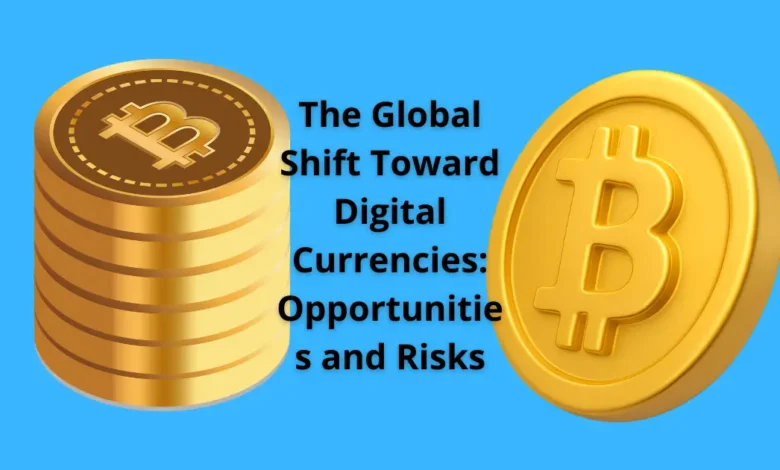
Digital Currencies are rapidly reshaping the global financial landscape, blurring the lines between traditional banking and decentralized innovation.
table of contents
Digital Currencies and the New Financial Revolution
The world is witnessing a financial turning point. As nations, banks, and individuals move toward digital forms of money, Digital Currencies are no longer a futuristic concept — they are becoming a fundamental part of the global economy.
Central banks are launching their own digital currencies, private companies are creating new crypto ecosystems, and consumers are increasingly relying on virtual wallets instead of cash. This transformation is not just technological — it’s ideological.
Money is evolving from a state-controlled asset into a digital instrument of empowerment that transcends borders and institutions.
How Emerging Markets Are Adopting AI Faster Than the West
Why the World Is Moving Toward Digital Currencies
Three main forces are driving this historic shift:
1. Financial Inclusion
In developing regions, millions lack access to traditional banking. Digital Currencies offer an entry point into the global economy through smartphones and internet access — unlocking opportunities for small businesses, freelancers, and the unbanked.
2. Efficiency and Transparency
Blockchain-based systems make transactions faster, cheaper, and traceable. Governments and corporations are turning to digital currencies to reduce corruption, ensure accountability, and optimize cross-border payments.
3. Technological Sovereignty
Countries want independence from global financial intermediaries like SWIFT or the U.S. dollar system. Nations such as China (with the digital yuan) and India (with the e-rupee) are leading this sovereignty movement, ensuring financial systems align with national interests.
The Risks and Challenges Ahead
While the potential is enormous, the Digital Currencies revolution brings new risks that must not be ignored.
1. Regulatory Uncertainty
Most governments are still figuring out how to regulate digital money. Too much control could suffocate innovation, while too little could open doors for fraud, money laundering, and market instability.
2. Cybersecurity Threats
As finance becomes digital, so do its vulnerabilities. Hacking, scams, and phishing attacks are growing alongside adoption — challenging both individuals and institutions to invest heavily in cybersecurity.
3. Privacy Concerns
Central Bank Digital Currencies (CBDCs) could potentially allow governments to monitor every transaction. While this enhances oversight, it raises ethical questions about financial surveillance and personal freedom.
4. Economic Inequality
Although digital currencies aim to democratize finance, early adopters — often from wealthier or more technologically advanced nations — might gain disproportionate benefits, deepening the economic gap.
How Governments Are Responding
Around the world, different nations are experimenting with different models of digital currency:
- China’s Digital Yuan (e-CNY) is the most advanced state-backed digital currency, used in public transport, e-commerce, and government payments.
- The European Union is developing the Digital Euro, focusing on privacy and interoperability.
- The United States remains cautious, exploring a digital dollar but prioritizing regulation before implementation.
- Africa and Latin America are witnessing a grassroots crypto movement, where decentralized tokens fill gaps left by weak financial infrastructures.
This diverse experimentation marks a new era of monetary pluralism, where different currencies — fiat, crypto, and hybrid — coexist in a dynamic digital economy.
Opportunities That Digital Currencies Create
Beyond finance, the rise of Digital Currencies is fueling innovation across multiple sectors:
- E-commerce: Faster, cheaper global payments without currency conversion.
- Remittances: Workers can send money home instantly, bypassing banks.
- Smart Contracts: Automated payments tied to real-world conditions.
- Startups: New models of fundraising through tokenization and DeFi (Decentralized Finance).
These opportunities are redefining how value is created, shared, and controlled — shifting power from centralized authorities to individuals and communities.
The Global Divide: Who Wins and Who Loses?
The global shift toward Digital Currencies could reshape geopolitical power.
Countries with strong tech ecosystems — like China, the U.S., and India — will gain influence over the digital monetary infrastructure.
Meanwhile, smaller economies may become dependent on these platforms, echoing the same dependency patterns seen in the traditional financial system.
The key question becomes:
Will digital money liberate or dominate the world economy?
The answer depends on how nations balance innovation with regulation, privacy with security, and freedom with control.
Conclusion: The Future of Money Is Already Here
The global transition to Digital Currencies is not a possibility — it’s a reality unfolding in real time.
The shift brings unparalleled efficiency, inclusion, and transparency, but it also challenges our definitions of ownership, control, and trust.
The next decade will test whether humanity can create a digital financial ecosystem that serves people — not just profits or power.
Those who adapt early will define the new world of money, while those who hesitate may find themselves left behind in a cashless, borderless future.
FAQ
Q1: What are digital currencies?
They are electronic forms of money, issued either by central banks (CBDCs) or decentralized blockchain networks like Bitcoin and Ethereum.
Q2: Are digital currencies replacing cash?
Not entirely — but the use of cash is steadily declining as digital payment systems and central bank digital currencies expand.
Q3: What is the biggest risk of digital currencies?
Cybersecurity and privacy concerns. Without proper safeguards, digital currencies can expose users to surveillance or theft.
Q4: How can developing countries benefit?
They can expand financial inclusion, attract international investment, and reduce transaction costs for cross-border trade.
Q5: Will digital currencies strengthen or weaken banks?
They could weaken traditional banking if consumers and companies start using digital wallets instead of bank accounts — unless banks adapt by offering digital services themselves.
Discover more from Feenanoor
Subscribe to get the latest posts sent to your email.











